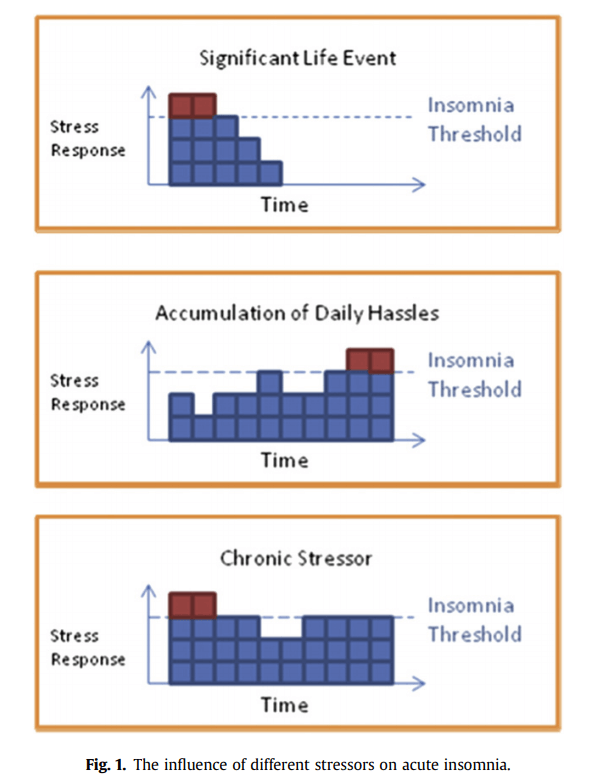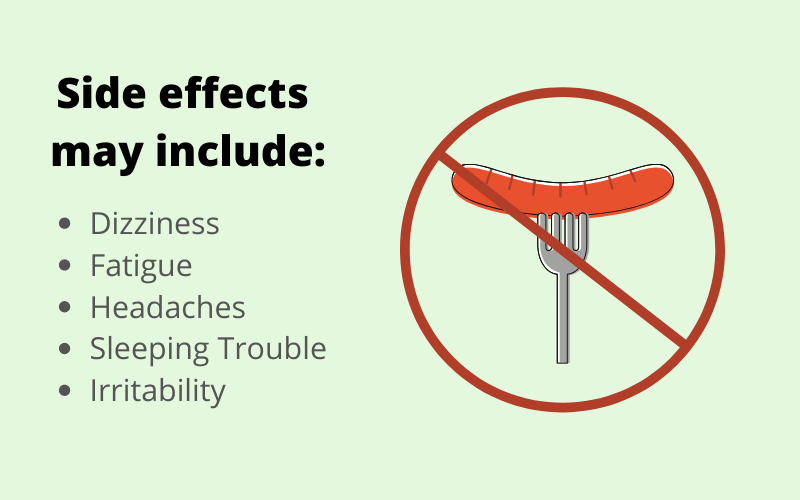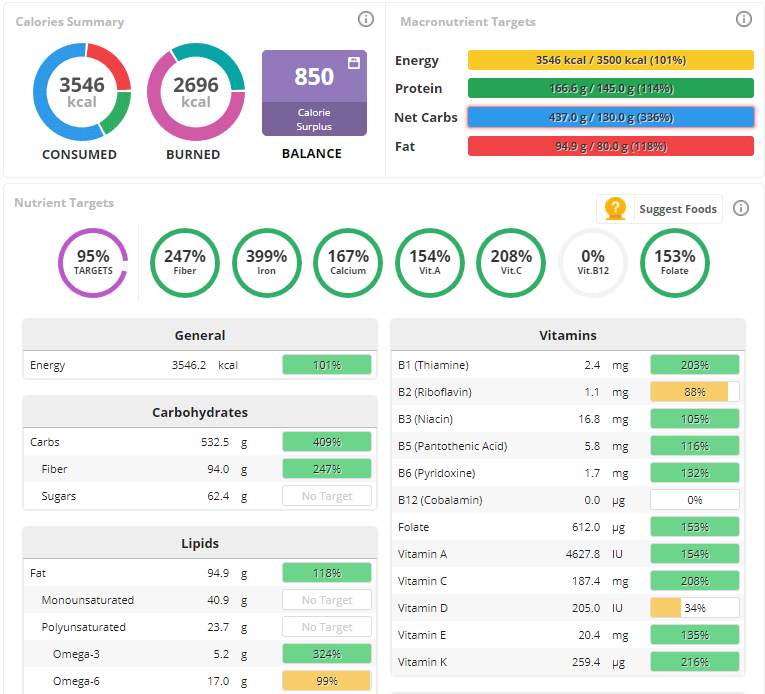I know the feeling of tossing and turning while trying to get to sleep all too well.
In the past, I had terrible sleep issues and it took me years of learning and experimenting to become a good sleeper.
A big event, like going vegan, can cause sleep difficulties (and even insomnia) in some. I’ll break down possible reasons, as well as what treatment options are usually available.
Note that this is not a substitute for medical advice. If you’re having significant health issues from your insomnia, go see a doctor asap.
Table of Contents
Do You Have Insomnia?
There’s a difference between having some sleep issues and having insomnia.
So start by getting a feel for your sleep quality by using this free Pittsburgh Sleep Quality Index online calculator.
It takes about a minute and you’ll get a results table like this at the end:
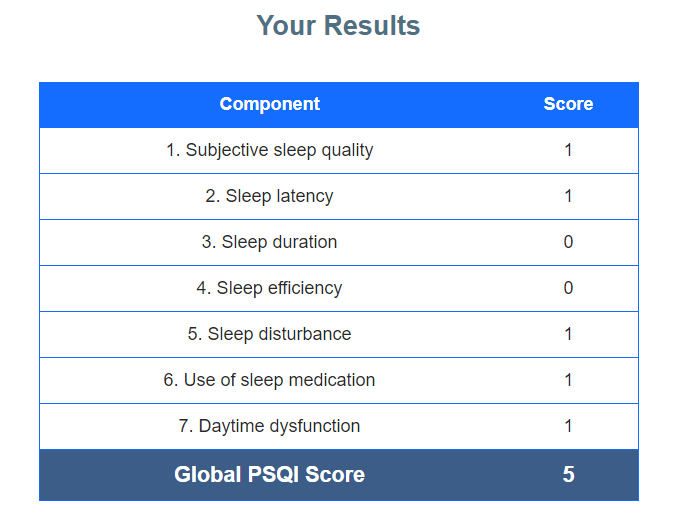
The PSQI is often used by researchers to determine sleep quality.
A Global score of 5 or below means you’re a “good” sleeper. Any score greater than 5 means that you’re likely to have insomnia or be at risk of developing it (it’s not a confirmation by itself, but a good indication).
The higher the score, the more likely you actually have insomnia.
Likely Causes of Insomnia in Vegans
There are many risk factors for insomnia, however, some are more likely if your sleep issues came after an event like going vegan. Namely:
- Stress
- Meat and/or dairy withdrawal
- Diet and nutrition
Veganism, Stress, and Sleep Troubles
The number one cause of sudden insomnia is stress.
Everyone has a certain level of stress. As long as that stress doesn’t pass a certain level (your “insomnia threshold”), you won’t have significant sleep issues.
But being vegan comes with many challenges, from worrying about what you’re going to be able to eat, to stressing about social events.
Even if you handle the changes well, a small stress response can still put you over that threshold.
If you are a new vegan experiencing a lot of stress, it will go down as you figure things out, and your sleep issues will likely resolve on their own.
However, if stress from vegan-related activities and situations persists, you can develop chronic insomnia.
Meat and Dairy Withdrawal
I’ve written more detailed guides to dairy withdrawal and meat withdrawal in the past.
They don’t affect everyone in some way (most people have no symptoms), but a significant amount of people experience sleeping trouble from the change.
While it varies based on the amount of dairy or meat you were eating before stopping, it typically takes a week for the symptoms to subside.
Dietary Factors That Affect Sleep
In addition to lifestyle factors, sleep researchers have found that certain foods and nutritional deficiencies can have a significant impact on sleep quality.
We’re going to look at them in the context of a vegan diet when relevant.
If you suspect you have a deficiency, try to get a blood panel to test if you have any. If that’s not an option for some reason, track your diet using a free tool like Cronometer to see if you’re regularly not getting enough of any of these key nutrients.
Caffeine
Caffeine can be a useful stimulant, as it improves alertness, concentration, reaction time, and more (1).
However, it can negatively affect your sleep if it’s still in your system.
That’s why the recommended amount is 400 mg per day for the average person (2). Ideally, if you have to consume caffeine, do it early in the day.
Because it’s a habit-forming chemical, you can build up a tolerance to caffeine, which can be dangerous. You may find that you continually need more to get a “hit” of alertness (3).
If you’re having trouble reducing your coffee intake, try going with decaf coffee instead.
Sugar and Processed Foods
Researchers have found that diets low in fiber, and high in saturated fat and sugar intake correlates with lower sleep quality (4).
Even though a vegan diet typically contains fewer processed foods than an omnivorous diet, there are still plenty of sources of sugar. Try limiting your processed sugar intake for a few weeks and see if it makes a difference.
Vitamin D
Vitamin D is incredibly important to your health in multiple ways. A deficiency can lead to weak bones, impaired sleep, and depression, among other conditions (5).
The scary thing is that vitamin D deficiencies are very common. An estimated 1 billion people worldwide have a deficiency (6)
Many studies have shown that a vitamin D deficiency impacts sleep quality:
- It results in shorter sleep duration (7)
- It’s associated with worse sleep apnea symptoms (8, 9)
- Low vitamin D levels lead to longer time to fall asleep (10)
This shouldn’t be that surprising considering we synthesize vitamin D from sunlight, and we already saw the impact of the sun on our circadian rhythm.
You’re not going to find vitamin D in many plant foods.
Really, the only good plant source of it is lichen, which is a marine plant that basically no one eats. That’s what vegan vitamin D supplements are made from.
So either take a vitamin D supplement if you have a deficiency, or find a way to get more sun. Keep in mind that sunlight needs to be absorbed by the skin in order to stimulate vitamin D production in the body.
Vitamin B12
Vitamin B12, also known as the bane of a modern vegan’s existence. Somewhere around 50-70% of vegans have a vitamin B12 deficiency around the world (11).
It’s an important vitamin for overall health and sleep that vegans need to be careful about getting enough of.
Research shows that vitamin B12 helps regulate the circadian rhythm, and there’s a correlation between insomnia and low B12 levels (12).
While you can get B12 from fortified foods, the best option is to get a vegan vitamin B12 supplement. They’re cheap and convenient.
Iron
Iron deficiency is another common problem for vegans, and it can cause symptoms including fatigue, depression, and sleep issues like restless leg syndrome (RLS) (13).
Research has shown that after controlling for variables like anxiety and depression, iron deficiency anemia has a detrimental impact on sleep quality (14).
Again, you can either get iron through your diet or through supplementation. Be aware that an iron deficiency can take a long time to fix. Here’s a list of the best vegan iron supplements if interested.
One study treated patients with oral iron for 4-5 months to treat a deficiency. The subjects average sleep latency went from 143 minutes to 23 minutes (15); It can have a huge impact.
If you’d like to get it from food sources, the best vegan sources of iron are:
- Vegetables (spinach, brussel sprouts, kale, mushrooms)
- Seeds and nuts (sesame seeds, cashews, flaxseed)
- Beans (all varieties are great)
- Oats
Note that you can increase the absorption of nonheme iron by 3-6 times by eating it alongside vitamin C (16).
Magnesium
Magnesium deficiency can also contribute to RLS.
In addition, a small clinical trial found that a magnesium supplement helped subjects fall asleep faster (17).
There isn’t too much research specifically on magnesium deficiencies and sleep quality, but it does look like there could be a link.
Here’s a guide to the best vegan magnesium supplements if you suspect this could be an issue.
Alternatively, the best types of vegan foods for magnesium include:
- Swiss chard
- Buckwheat groats
- Oats
- Spinach
- Sesame seeds
- Brazil nuts
- Sunflower seeds
- Hemp seeds
If you’re paying close attention, you’ll have noticed that spinach, oats, and sesame seeds are also great sources of iron.
If for some reason you can’t get as much magnesium as you’d like, there are vegan magnesium supplements, and they can be useful.
Research indicates that oral magnesium taken regularly in the evening can be a useful therapy in certain patients with RLS (18).
Vegan Insomnia Treatment Options
The treatment for insomnia depends on what the root cause is. In any case, it’s good to see a doctor who can run a blood test or sleep study if needed.
If the cause of your sleep issues is just temporary stress from going vegan (it’s a huge change for most people), your issues may not need treatment. Or if you’re deficient in a nutrient, a simple supplement may be all you need.
For minor issues, melatonin is an effective over the counter supplement with quite a bit of evidence behind it. Note that not all melatonin is vegan, but there are a few good options.
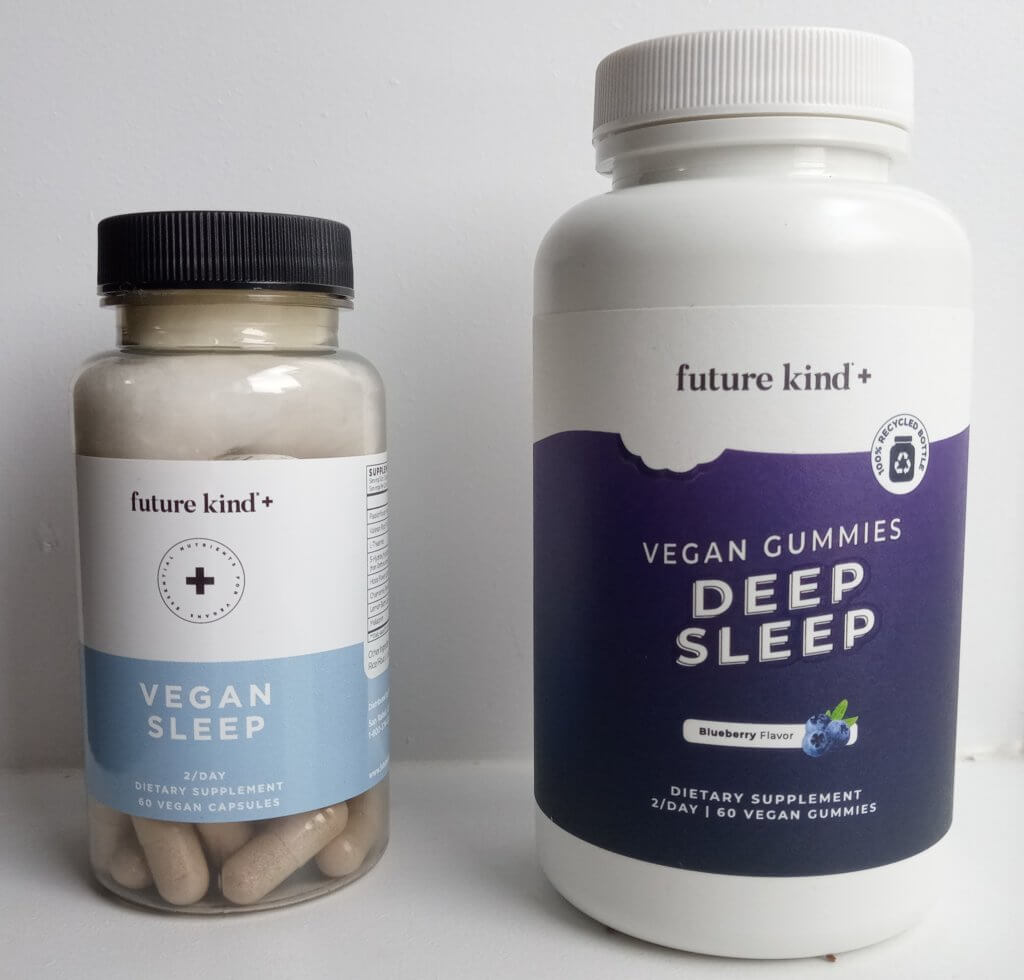
For patients with longer-term sleep issues, physicians usually treat insomnia with:
- Cognitive behavioral treatment for insomnia (CBTi) – Very effective at treating insomnia caused by stress and anxiety.
- Sleep hygiene education – A basic thing that almost everyone can benefit from.
- Medication – Depending on the likely root cause of sleep issues, sleep medication can be prescribed, usually as a short-term solution.
- Relaxation therapies – Meditation, yoga, and acupuncture have all been proven to be effective for improving insomnia symptoms in some patients with stress-based insomnia.
There are some really serious side effects of chronic insomnia, so it’s not something you want to wait around to see how it develops. Go seek medical help as soon as you’re able to if concerned.
